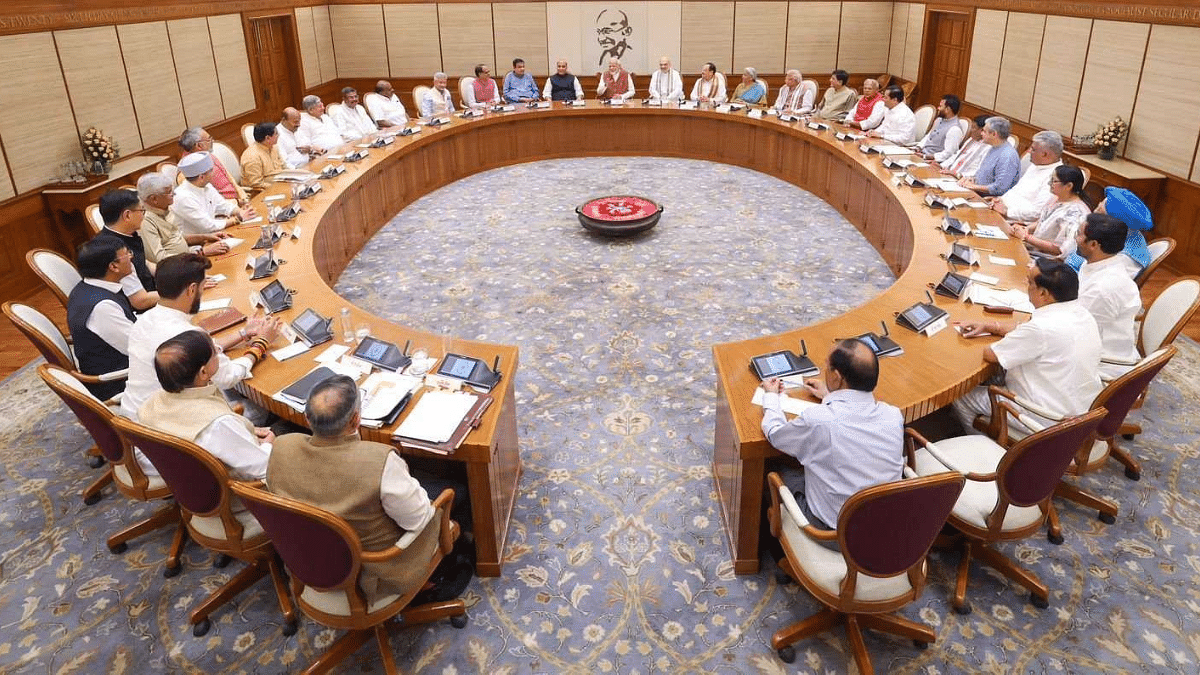New Delhi: Top leaders of the BJP retained their ministries in Prime Minister Narendra Modi’s third term, while many faces surfaced from alliance partners as their support is crucial to the coalition.
Amit Shah kept the home ministry, Rajnath Singh defence, Nirmala Sitharaman finance and S. Jaishankar external affairs, while Nitin Gadkari retained the Ministry of Road Transport and Highways.
Former chief minister of Haryana and first-time MP Manohar Lal Khattar, was allocated the power ministry along with housing and urban affairs.
Ashwini Vaishnaw retained railways and was given additional charge as minister of information and broadcasting, replacing Anurag Thakur.
Dharmendra Pradhan retained the Ministry of Education in Modi 3.0. Bhupendra Yadav has also kept the Ministry of Environment, Forest and Climate Change.
Former Madhya Pradesh Chief Minister Shivraj Singh Chouhan was appointed the new agriculture minister, and also got the Ministry of Rural Development.
Former Bihar CM Jitan Ram Manjhi from ally Hindustani Awam Morcha has been allocated the Ministry of Micro, Small & Medium Enterprises.
Ram Mohan Naidu from the Telugu Desam Party got civil aviation. The young MP will take over the ministry from Jyotiraditya Scindia, who won the Guna seat in Madhya Pradesh. Scindia got telecommunication.
H.D. Kumaraswamy, the MP from BJP partner Janata Dal (Secular), has been allocated the Ministry of Heavy Industries.
The BJP’s Kiren Rijiju, who was the minister of earth sciences and food processing industries in the previous term was appointed to the parliamentary affairs ministry, replacing Prahlad Joshi. Joshi has been allocated the food, consumer affairs and renewable energy ministry.
Meanwhile, BJP MP and party chief J.P. Nadda was assigned the Ministry of Health in Modi 3.0. Nadda will replace Mansukh Mandaviya, who will now be in charge of the Ministry of Labour and Employment.
Though the BJP has kept key portfolios in its kitty, it had to give some important ones to allies who have buttressed the NDA numbers to keep Narendra Modi in power.
Unlike the last two terms, the BJP failed to get a majority on its own in 2024 and is heavily reliant on partners such as Nitish Kumar’s JD(U) and Chandrababu Naidu’s TDP.
Modi is set to lead a coalition government for the first time, and has so far given Cabinet berths to JD(U), TDP, JD(S), Hindustani Awam Morcha and Lok Janshakti Party. These and some more alliance MPs, who were appointed junior ministers, were among the 71 who took oath at the forecourt of the splendidly-lit Rashtrapati Bhavan on Sunday evening.
Thirty cabinet ministers, excluding the Prime Minister, took oaths on Sunday. Another 36 ministers of state and five ministers of state with independent charge were also sworn in.
Before holding his first Cabinet meeting on Monday, the prime minister told his office that he wanted to go ahead with “new energy and new courage”. “I was not born to stop,” he told staff of the PMO.
In its first meeting, the cabinet cleared plans to build three crore houses for the rural and urban poor under the Pradhan Mantri Awas Yojana. In the morning, Modi also signed his first file releasing Rs 20,000 crore to about 9.3 crore farmers under the Kisan Nidhi scheme.
Also read: Chouhan, Khattar & Kumaraswamy among 30 cabinet ministers in Modi’s 71-strong council of ministers

